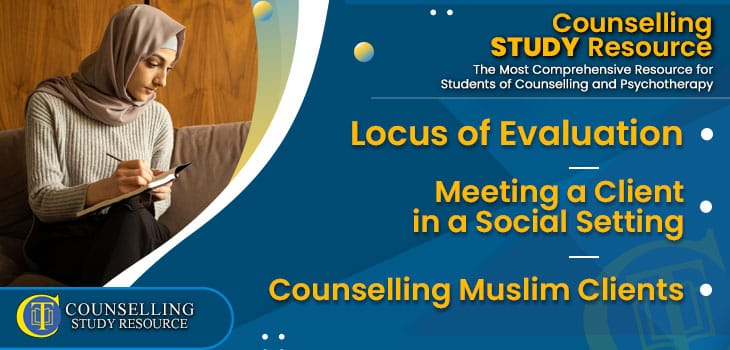See Counselling Skills Used in Real Sessions by Qualified Therapist
Real Sessions – Real Presentations – Real Skills
Gain the competence and confidence to use counselling techniques effectively!

In Episode 257 of the Counselling Tutor Podcast, your hosts Rory Lees-Oakes and Ken Kelly take us through this week’s three topics:
Locus of Evaluation
Locus of evaluation is all about view of self – figuring out who we are and finding our real selves. Listen as Rory and Ken discuss the different types of locus of evaluation, and how this might present in a client:

Real Sessions – Real Presentations – Real Skills
Gain the competence and confidence to use counselling techniques effectively!
There is always the chance, regardless of how slim, that you may bump into a client outside of sessions. It’s important for both you and your client that you know how you will tackle this situation.
The key points of this section include:

On-demand access to a rich lecture library covering theory, skills, and professional development for counselling students—Mapped to the UK awarding body criteria
“The Student Library has been BRILLIANT, I can’t recommend it enough!
It has been a lifeline in helping me prepare for practice and my first clients. If you’re considering it, go-for-it, it’s absolutely worth it!”
Kelly – Graduated and now in practice.
In this week’s ‘Practice Matters’, Rory speaks with Tayba Azim about counselling Muslim clients and supporting them with their mental health.
The main points of this discussion include:
Locus of Evaluation

Get on-demand Certified CPD that is implementable in your practice
